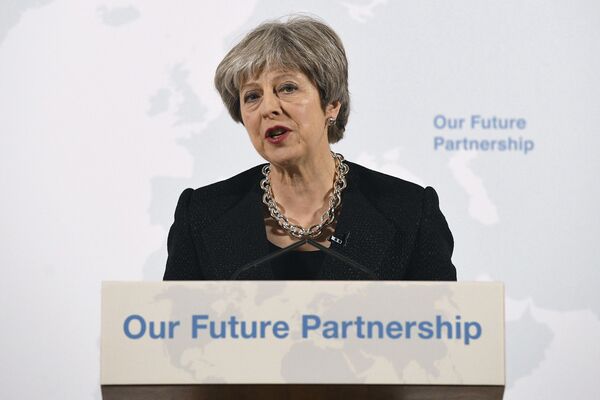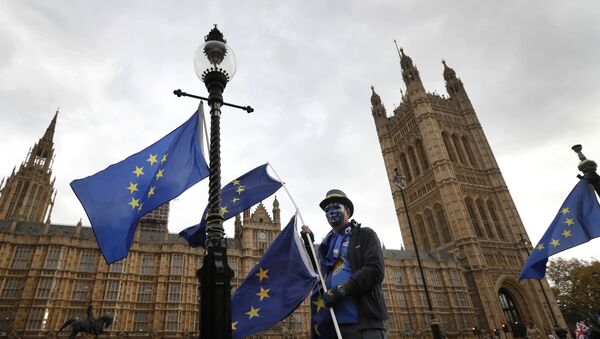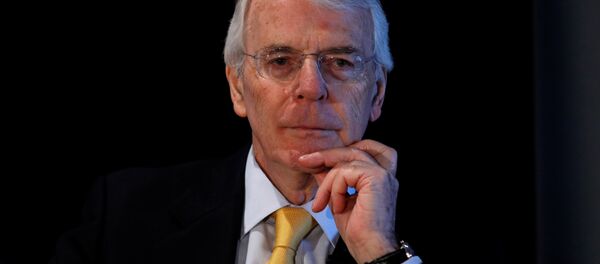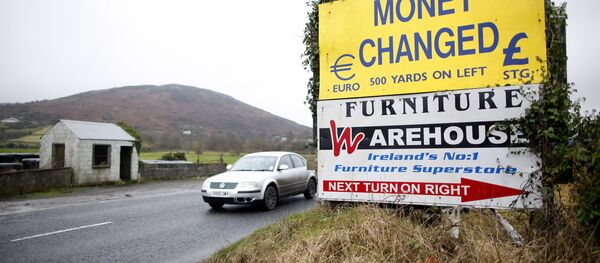Sputnik discussed Theresa May's keynote speech with David Paton, Chair of Industrial Economics at the Nottingham University Business School.
Sputnik: Various experts found Mrs. May’s speech rather disappointing. What is your overall feeling about her address? Have the future relations between the UK and the EU become clearer?
David Paton: I think there was something for everybody in it, it's an attempt to bridge the gap between the sort of extreme Remainers in this country and the Brexiteers, so the tack she seems to have taken is to say we will reserve the right to make changes to our regulations and our tariffs and so on, but we will not actually exercise them, we will try to stay as close as we can to the EU to make trade, instead, easy. Well, that's not necessarily a bad strategy, because what people on the Brexit side of the argument want is the control, the ability to make their own decisions in the future on regulations and tariffs and so on.

David Paton: I think the speech was interesting yesteday, because she was speaking more to the leaders of the other European countries and to the EU itself. People like Guy Verhofstadt (the European parliament’s Brexit coordinator) dismissed what she was saying, but he was probably going to do that with whatever she said. I think the people she was really taking to were the people in France, Germany and Ireland; for them trade with the UK is really important, and she was saying to them we can have a trade deal, it has to be in the interest of both sides, and you know, trade deals economically, and are not something you give to another country, it's something you do for your own benefit, because they benefit both sides, so I think she's saying to them, we know you're still going to want to have access to the UK financial system to sell cars to the UK, and in the case of Ireland sell dairy and agricultural products, so let's find a way to make that happen as easily as possible, but accepting that the things that we have to do in this country, something that's absolutely clear, that we have to leave the customs union and the single market to, sort of, enforce the desire of what happened in the referendum. I think they're the people who she's really talking to in the speech on Friday.
READ MORE: Oops! UK PM Jokes About Unfortunate Campaign 'Interruption'
Sputnik: There is the issue of the hard border in Northern Ireland, what's your position, your opinion?
Sputnik: What's your view with regard to how these trade relations between the EU and Britain are going to develop, is it still going to be very much walking on thin ice, maybe even getting to the eleventh hour and negotiations still being held in Brussels in the last weeks and days of March 2019 before a negotiated agreement is actually nailed to the mast, so to speak?
The views and opinions expressed in this article are those of the author and do not necessarily reflect those of Sputnik.





